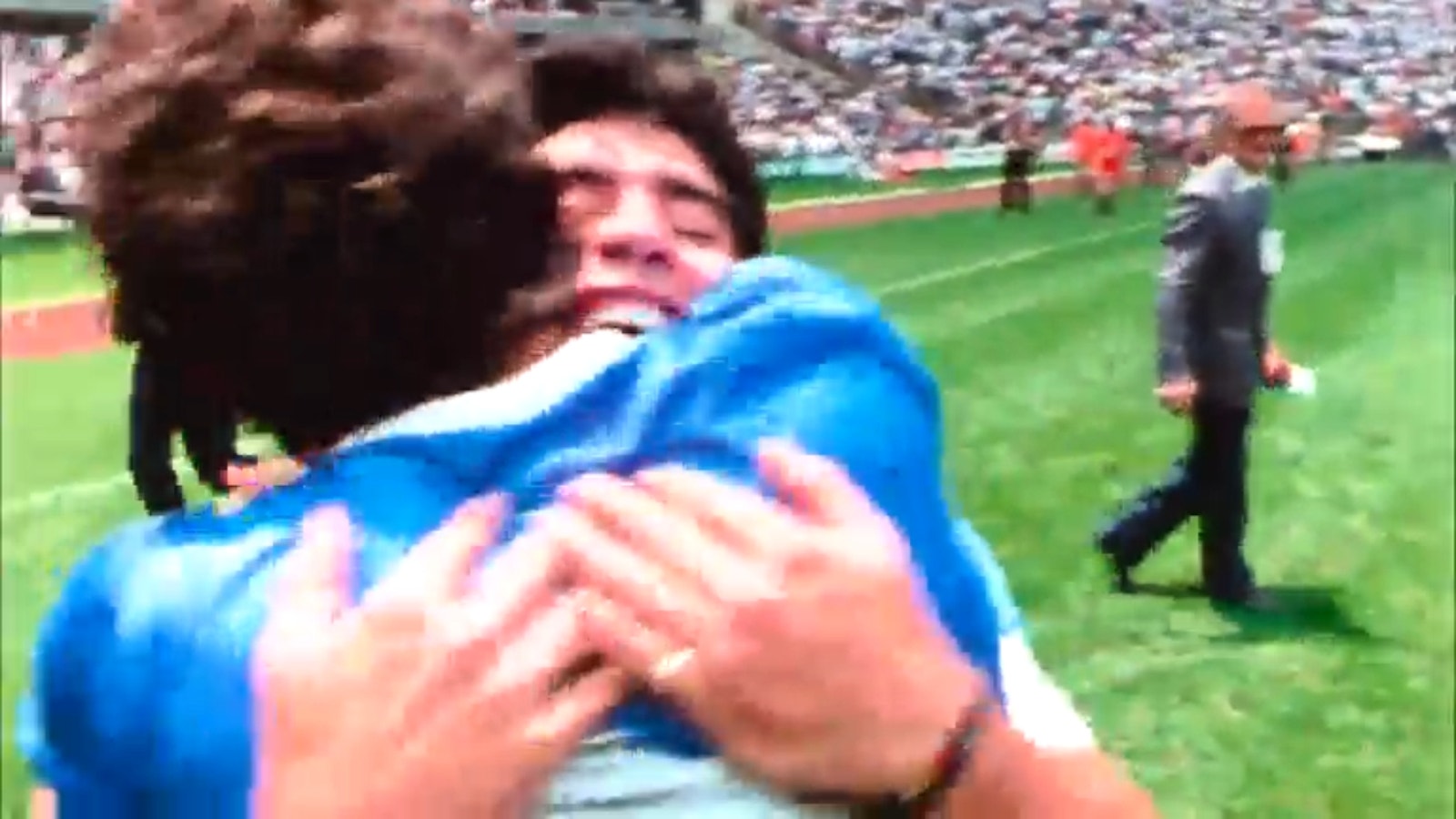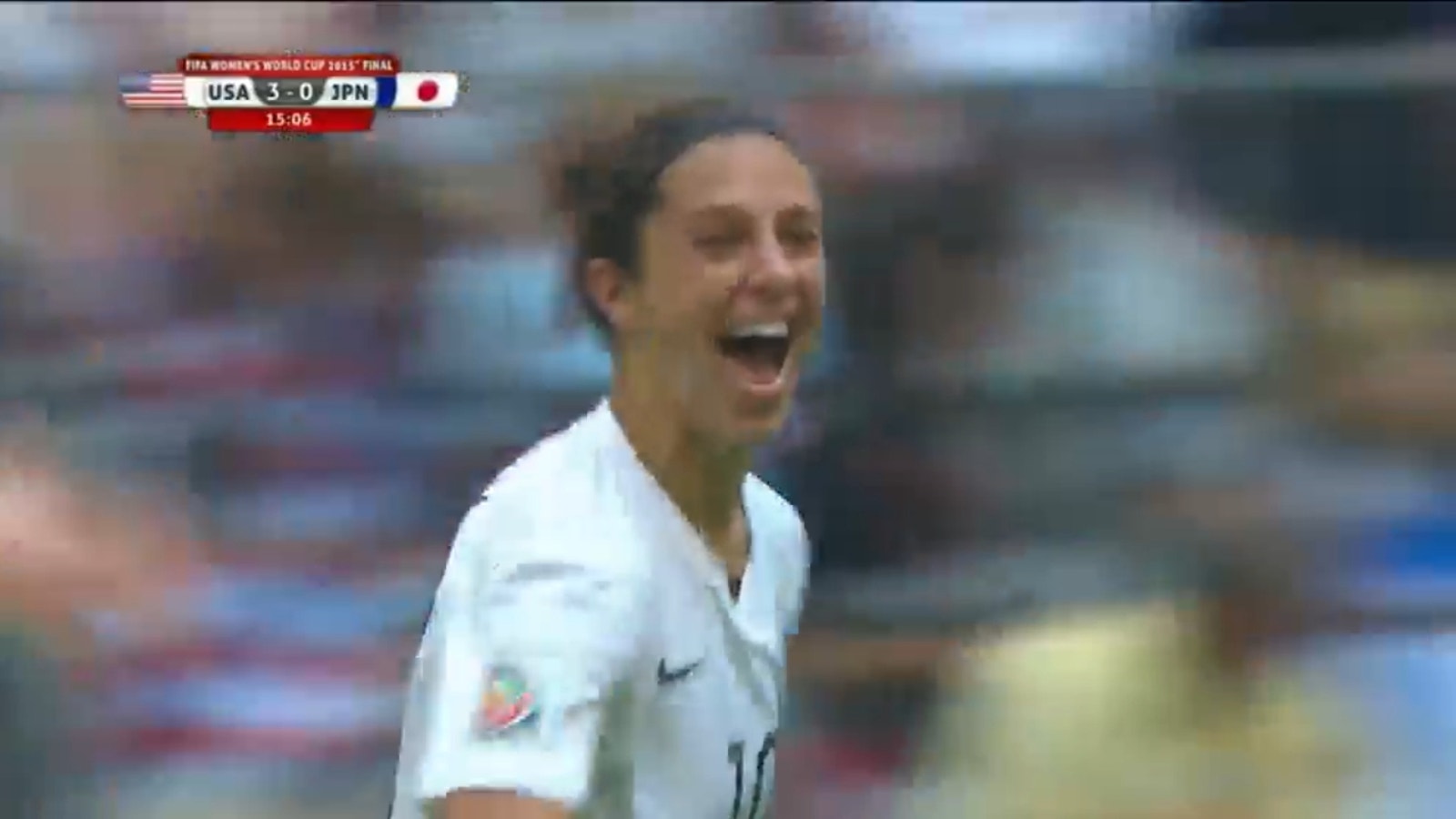“Gooooooooool!”
It’s one of the most iconic calls in sports, and arguably the singular most famous call in soccer. But who is the man behind the microphone?
That would be none other than Andrés Cantor, a native of Argentina who has built a legendary broadcast career over the last 38 years, thanks in large part to his unapologetic passion for the sport, which is highlighted by his unmistakable goal calls.
Ahead of the 2026 FIFA World Cup in Canada, Mexico and the United States, we caught up with Cantor to discuss next summer’s tournament, his favorite World Cup memories and the growth of soccer in the U.S. since the 1994 World Cup.
This interview was edited for brevity.
As part of their countdown to the 2026 FIFA World Cup — and in the spirit of their custom new chant “¡Nos Vamos Al Mundial!” — Buchanan’s Whiskey is giving World Cup tickets to six fans that yell “Gooooool” the longest. Do you know what your longest goal call ever is?
Cantor: Actually, I don’t. If I remember correctly, Bob Costas timed me once, and it was like 44 seconds. But it doesn’t really matter to me. I just do it out of passion and not anything else — it just comes out. Sometimes the goal is shorter because I am out of breath, and I’ve been talking way too much preceding the score. So no, I don’t have an exact count. But I do remember that on one of the stops with Buchanan, it was 39 seconds. But they were just yelling “Gooooool!” with nothing in between, which I can tell you is even harder.
The passion you have for calling the sport, even after 40 years, is apparent. Are there any tricks or tips that you have during or in the lead up to the games that keep you sharp and allow you to be present in those moments?
Cantor: That’s a great question. It does take a physical toll, especially when you’re calling games and flying around and jumping from game to game. You take a red eye, and you sleep in different cities throughout a major tournament like the World Cup.
I compare the one that I called in Russia, where, in the first 23 days, I think I took 36 or 37 different airplanes because there were no direct flights between the cities, and then the one in Qatar, where I slept in my own bed during my stay because the World Cup was literally in one city. Rest is key and, obviously, resting the voice is key.
I do have a vocal coach that helps me every four years in the months leading up to the World Cup, and she tells me exactly the best techniques, but, honestly … I never follow them. I remember them, but it’s really hard when you go at a certain speed, and you have so much adrenaline going because you’re calling a great game, and it’s 1-1 and somebody scores.
Let’s take the 2022 World Cup final. It was 2-0, 2-2, 3-2, 3-3. The penalties. The save. Argentina almost wins it at the end. At that moment, there’s so much emotions, so much effort I already had put into that. Obviously, I remember all the techniques that I’m supposed to do with my vocal cords. I do the warm-ups — that is the one thing I do. I do the warm-ups. I try to follow all the advice before and try to remember as many techniques during, but I would be lying if I told you I apply them all during my broadcast.
Argentina vs. France Highlights | 2022 FIFA World Cup Final
The next time you call a World Cup match will be at the 2026 FIFA World Cup in Canada, Mexico and the United States. If you can think back to working the 1994 World Cup as an analyst, what is something about the American soccer experience that you remember and are looking forward to revisiting next summer?
Cantor: I look forward to revisiting it now more than ever. It will be the greatest spectacle of all time in this country. I call it the “Double XL World Cup” because of the 104 matches and 48 teams, so it will really be something.
I remember vividly how I waited for 1994 because I knew that it was going to be a huge success. Luckily, it was, and there was a before and after 1994 for soccer in this country. Two years later, MLS was launched, and now we’re going into this World Cup with a very robust and solid League of 30 teams. I don’t think the game itself needs this World Cup to have one of those moments, because soccer is alive and well, but there will be many, many more fans, Latin and non, that are going to be introduced to the beautiful game. I can’t wait for that. With this being local, in our cities, with the fandom that Latinos especially have, is going to be a “Wild Party.”
You’ve said that the way that you broadcast matches is influenced by the passion for the sport that almost everyone in Latin America is born with. From your perspective, have you seen that same passion in the U.S. grow since 1994? How would you define American soccer culture in 2026?
Cantor: Obviously, everything that we do is different than the rest of the world. Each country has its own culture: for soccer, for food, for music, you name it. Here, the soccer culture is different in the sense that the people that go to the stadiums go more to be entertained. Obviously, there are passion points, especially if your national team is playing. It’s a sense of pride, it’s a sense of unity, and the Latinos that live here feel that and become part of that fandom.
Even the new U.S. national team coach, Mauricio Pochettino, is trying to instill that gritty type of play. It’s do or die. We need to play like this will be our last game. Every game counts. It’s more of an Argentinian and Latino type of mentality that he’s trying to instill in a group of players that perhaps have gone abroad at a young age and are used to more of a European type of connection to the game.
I’m not passing judgment, and I’m not saying that there’s less fandom in Europe, because there’s not. It’s just a way different vibe when it comes to Latinos in the U.S. and Latinos throughout the world. In Latin America, we just have a different culture. We’re more exuberant, we dance, we party, we like our music stars, we love our food and, obviously, we love soccer. Everything is done more exuberantly.
Again, it’s not better than anybody else’s, but it’s, it’s our match, it’s our DNA, our identity. And hopefully, you know some, some of what the coach is trying to tell the players will stick when it comes to next year’s World Cup.
Obviously, you were a fan of the sport longer before you were a professional broadcaster. Can you give me one World Cup memory that stood out to you as a fan and your favorite memory as a broadcaster?
Cantor: I will give you three. Two are tied to broadcasting; all three are tied to Argentina. As a fan, I’ve been lucky in my life to see my country — my home country — win the World Cup three times.
The first one, I was a fan. I was a teen in Argentina. I was there rooting. I went to see them every game, and I will never forget when we won our very first World Cup in the winter of 1978 because even though it was played in June, it was Argentina’s winter. I will never forget my joy, my happiness, being with my family around and celebrating there. I don’t know if it was different or a lesser celebration that it was when we won it in 2022.
Then my first professional memory was in 1986. I have two within the same World Cup. One obviously is witnessing when we won the World Cup in Mexico. But then a couple of games before, when Diego Maradona scored the most iconic, most beautiful goal in the history of the World Cup against England, not to mention the political connotations that game had, because of the Falkland Islands War.
Ángel Di María’s second goal in Qatar was pretty close to perfection, but it was a team effort. Maradona was a single-handed 65-yard slalom with players trying to get at him left and right. I will never forget the goal. I will never forget what I felt. I will never forget how happy that game before winning the World Cup made us — made all Argentinians.
Goal of the Century: No. 2 | Most Memorable Moments in World Cup History

I’ll have a bonus track. The second memory that I have professionally is the Landon Donovan goal in South Africa. I remember vividly.
I have to say this, because this is one of my most cherished goals. I’ve told Carli Lloyd this, because, you know, I have a good relationship with her: I don’t care that it was in the FIFA Women’s World Cup final; I truly believe that the third goal that she scored as part of her hat-trick from midfield against Japan and Vancouver in the FIFA Women’s World Cup final has to be considered one of the greatest World Cup goals of all time, regardless of genre. So it’s Donovan in South Africa against Algeria and Carli in 2015 in the Women’s World Cup.
Carli Lloyd’s Hat Trick: No. 4 | Most Memorable Moments in Women’s World Cup History

And, of course, Argentina winning. Montiel’s last penalty kick, which you would think is the easiest goal to call because it’s, you know, one against one. You know when the ball is going to be hit, and you know whether it’s going to go in or out. It’s been from a broadcaster’s perspective, there is none. It’s like throwing in basketballs. There’s no easier goal to call. And yet, you know, there was a lot of emotion behind it, and what happened with that goal.
Want great stories delivered right to your inbox? Create or log in to your FOX Sports account and follow leagues, teams and players to receive a personalized newsletter daily!
advisable

Get more from the FIFA Men’s World Cup Follow your favorites to get information about games, news and more








